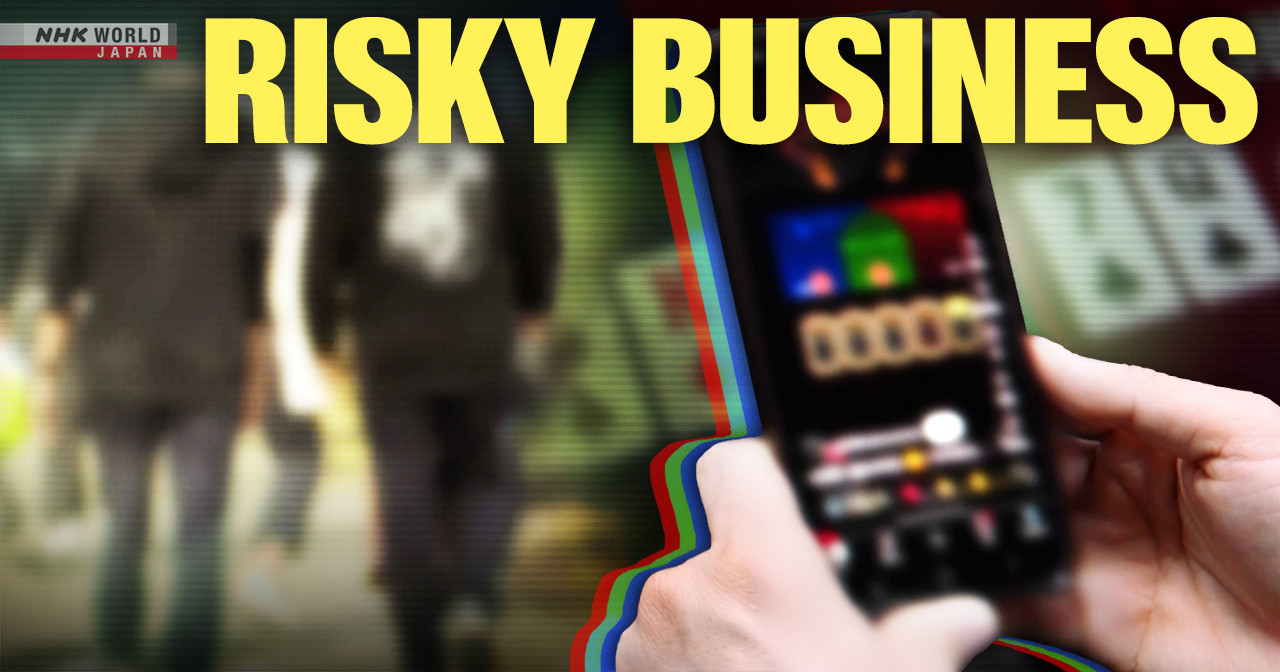Teenagers in South Korea and Japan are learning the hard way about just how addictive gambling can be. Illegal betting sites are leaving many of them out of luck and severely out of pocket.
Crackdown in South Korea
South Korean authorities have recently put illegal gambling in their crosshairs. Cybercrime investigation officials carried out a nationwide crackdown in the year through October 2024, focusing on sites that target teenagers.

Police agencies across South Korea are part of a crackdown on illegal gambling.
Police charged nearly 10,000 individuals, with 267 taken into custody. The total included more than 4,700 youths, while about 14 percent were operators of illegal gambling sites.
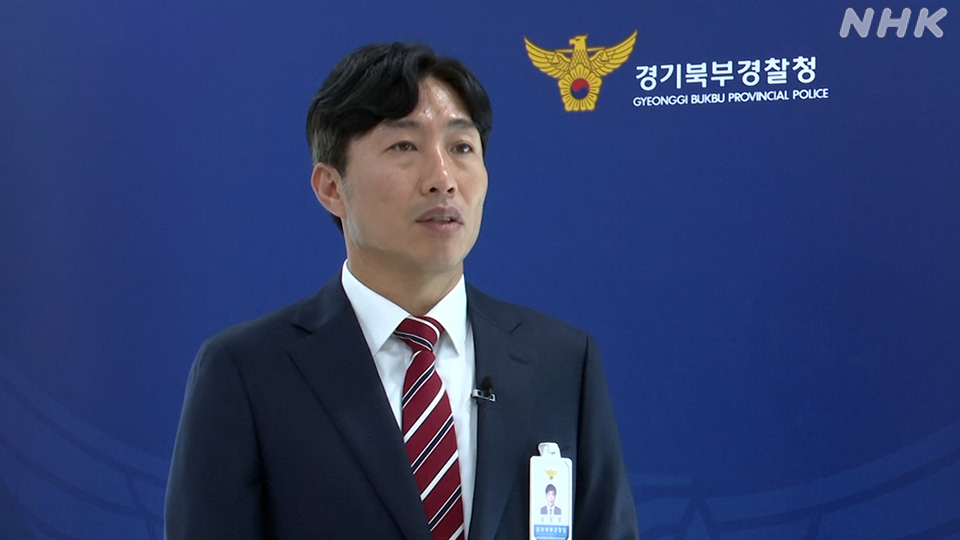
Kim Sun-kyum heads a cybercrime investigation unit at the Gyeonggi Bukbu Provincial Police Agency.
Kim Sun-kyum, who heads one of the police’s cybercrime investigation units, illustrated the scale of the problem. He says gambling sites in South Korea are worth trillions of won, or hundreds of millions of dollars, “and we consider those that also operate overseas as global criminal organizations.”
One bet leads to another
The gamblers are often young men. Two who spoke to NHK admitted to losing tens of thousands of dollars. They said they started by placing bets on sporting events or playing baccarat online, just like many people in their age group.
“In a circle of ten friends, maybe six, seven or eight will be gambling online,” said one of the men.
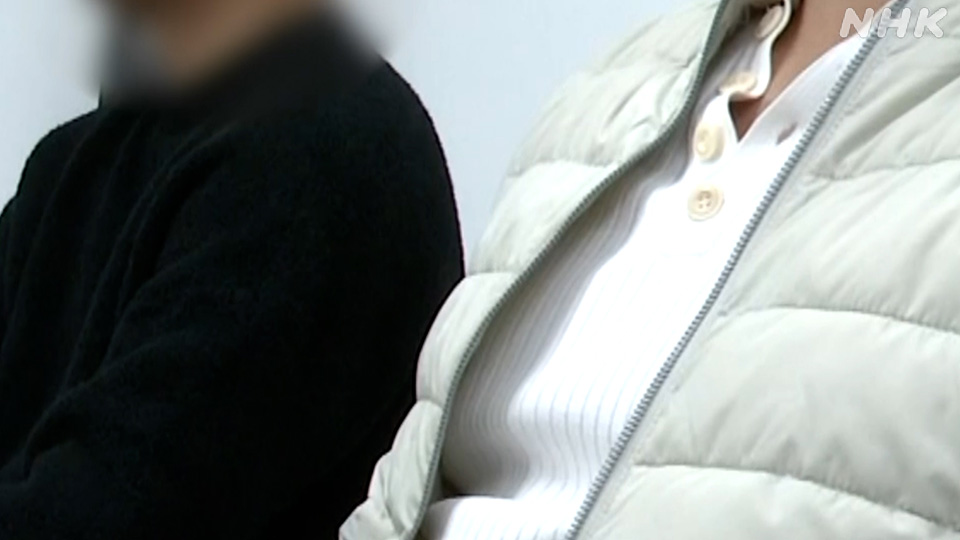
Two young South Korean men say they gambled away tens of thousands of dollars.
They also shed light on a coupon system that has likely been a catalyst for South Korea’s explosive rise in young gambling addicts. “You can provide your account ID to friends. And when they sign up, you’ll receive a referral bonus of up to about 70 dollars.”
For many people, the allure of gambling comes from the rush of victory. But the more you win, the harder it is to step away. “At one point I had earned about 9 million won,” or 6,000 dollars, says one of the young men, while his friend claimed to have raked in as much as 8,000 dollars.
And perhaps most worryingly, they even believed work and study were no longer essential parts of life. But then their luck ran out, and the addiction reared its ugly head.
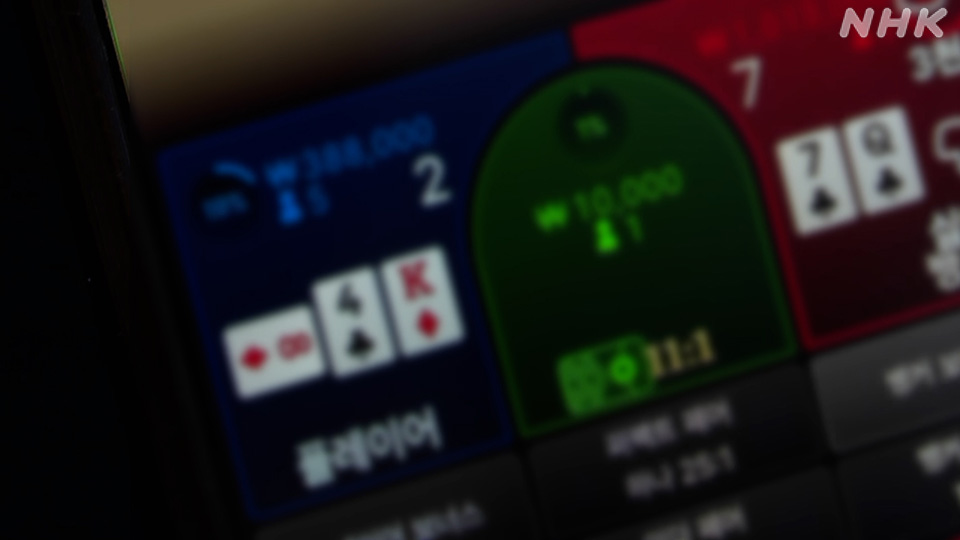
An illegal gambling site is pictured in South Korea.
“I knew I was losing,” said one of the young men. “But I couldn’t forget the taste of that first win. I kept chasing the same high, again and again.”
Families pay the price
Gambling addicts often don’t just harm themselves. One man who spoke to NHK says his son cost the family more than 140,000 dollars. “He took expensive things from the home and sold them to fund his habit,” he says. “He even stole from others.”

This man’s son resorted to crime to fund his habit.
The man’s son is now serving time in a juvenile detention facility. “I initially thought he was just playing games, not gambling on baccarat. When I found out, it felt like the sky was falling. I blame myself for not stopping him.”
Hitting websites where it hurts
Jo Ho-yeon used to operate an illegal betting site, but he decided to turn his life around. Three years ago, he founded a group with the primary aim of protecting teenagers from gambling.
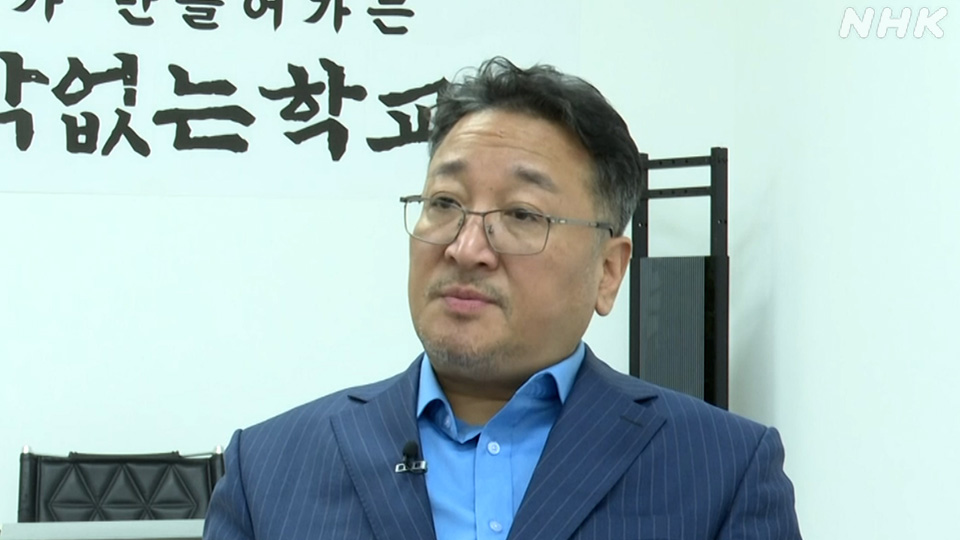
Jo Ho-yeon is the founder of support group, Gambling-Free School.
He points out that many online casinos provide bank accounts to players who are too young to set them up on their own. So his group works with the police to shut them down.
“We’ve suspended 4,000 personal and corporate bank accounts, and blocked about a million puppet accounts,” he says. At the same time, Jo believes that is probably just the tip of the iceberg.
What’s more, he says kids often have their own gambling networks at school. And he says many of these classroom operations are run on fear and violence.
“Teens with links to gambling sites lend money to their classmates at extremely high interest rates,” he says. Many can’t pay it back, and things turn ugly. “Some teens will be threatened and beaten for the purpose of debt collection. In the worst cases, they are tortured.”
Japanese expert points to growing crisis
Illegal gambling is also quickly taking root among teens in Japan. The National Police Agency says almost 180,000 have used online casinos.
A young male who spoke to NHK explained just how easy it is to hand over large sums of money online. “I once made a deposit of about 600 dollars.” Another gambler says, “I’m tens of thousands of dollars in debt.”
Tanaka Noriko, who works for an organization that provides support to teenage gamblers, is worried. “The situation has become critical because online casinos have spread,” she says.
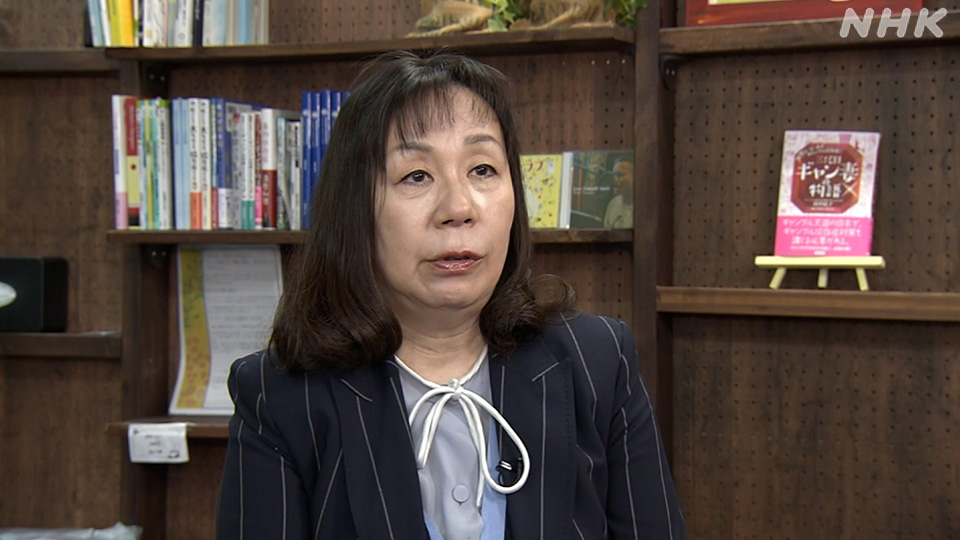
Tanaka Noriko is a member of a group supporting teenagers addicted to gambling.
“The combined debts owed to these operations are even higher than in Japan’s publicly authorized forms of gambling, such as horse racing and track cycling,” says Tanaka.
Falling into the gambling trap is easy, but weaning a young person away from online betting sites can be much harder.
“The prefrontal cortex that controls impulses is still underdeveloped in teens,” says psychiatrist Nishimura Kotaro. “So once they get into gambling, they will likely become even more absorbed.”

Dr. Nishimura Kotaro specializes in treating gambling addicts.
It all raises the question: How best to nip the problem in the bud? Tanaka says online filters might be a good place to start. That way, young people would find it harder to access illegal betting sites.
As for teens showing signs of gambling addiction, Tanaka says it is imperative to find them the right support as soon as possible. “Don’t try to handle it among family members only,” she says. “Seek help, including on the financial side.”
‘Let the kids pay off their debts’
Back in South Korea, Jo Ho-yeon says parents should never cover the gambling debts of their children. “They should repay it on their own by working part-time jobs,” he says. “That way, they will learn the true value of their debts.”
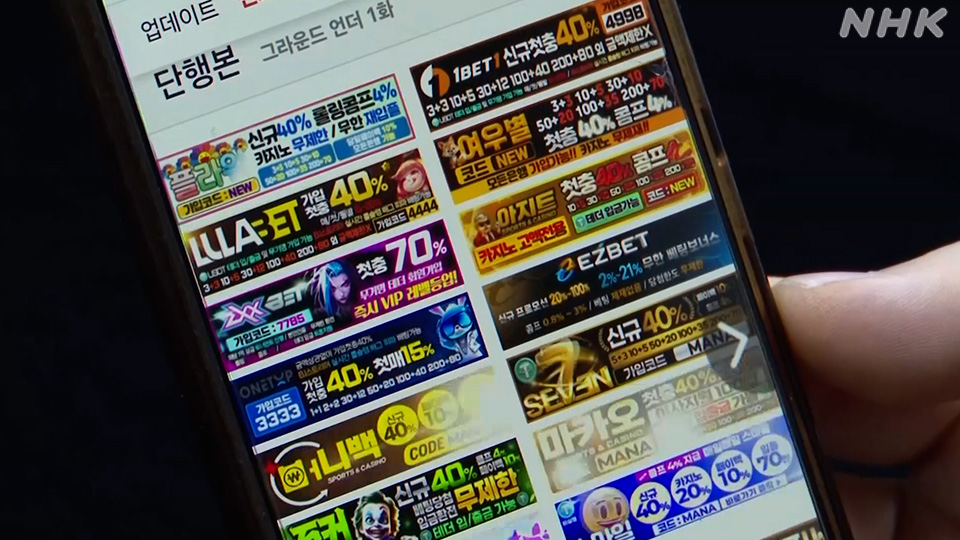
An online gambling hub is pictured in South Korea.
The days when casinos only existed in bricks and mortar are long gone. Now, we’re all just a swipe away from making a bad bet. And another. There are concerns about illegal gambling operators harnessing artificial intelligence to widen their appeal. Young people are putting their futures on the table, and the stakes could barely be higher.
